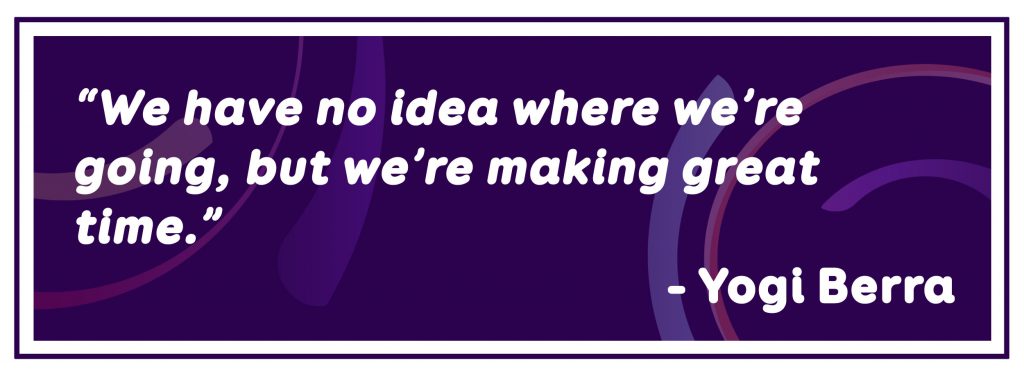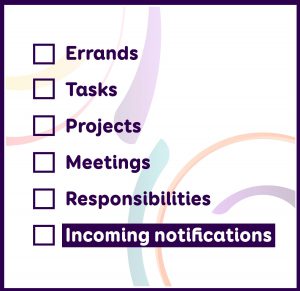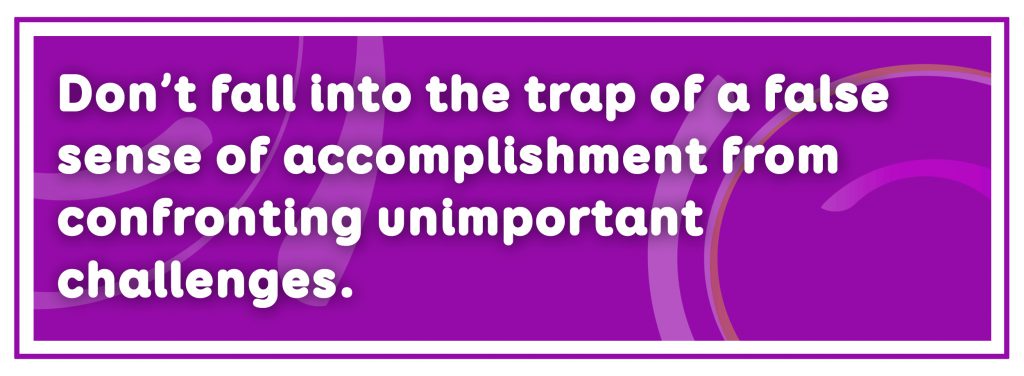
Losing your way in the literal sense usually happens on road trips, on vacation, and when we’re just-plain distracted. It happens to us all.
What about losing your way in the figurative sense? We talk as a society about losing our moral direction, or losing our sense of the internal compass that tells us what we want or even who we are. How about losing your way in life? At some point, that happens to all of us, too.
Why do we get “lost?”

There are so many distractions around us that it’s easy to get lost. You could say it’s easier to get lost today than ever before. We have errands, tasks, projects, meetings, responsibilities—these have been constants forever. But now, we also have the onslaught of notifications pulling us out of the task at hand and back into other pending to-dos and preoccupation.
There will always be distractions. We’ve been lost before, and be lost again. Though, while it’s good to be pragmatic about this, one of the biggest culprits misdirecting us today is avoidable. Wouldn’t we want to do everything in our power to avoid it?
Recognizing and articulating your goals is not always an easy thing. And once you do, you have to map that goal into manageable pieces, stick to that plan, and oversee its execution. In other words, you need to be the engine and the conductor while you navigate down that path.
There are always exits to take as you move down the highway, and sometimes those detours are necessary. When nature calls…well, you take the exit. Sometimes, you can get a sense of satisfaction on projects in this very same way—you’re working toward a goal, but you get distracted by some small, unrelated task that you think of out of the blue. It’s satisfying to get that task done, but the satisfaction doesn’t last. You get back to the project at hand, and later you feel like you have little to show for all the work you’ve done.
Letting distractions get the better of us is natural, and sometimes even rewarding. But making this a habit will not get you where you want to go. We call this “majoring in minor things.” By allowing minor things to get in the way of your potential or steer you off the map, you lose track of the goals you worked so hard to identify in the first place.
Like we said, this is avoidable. Here’s how to do it.
The “minor things” you shouldn’t major in
Let’s start with some questions. Are you taking care of your responsibilities? Do you give your best for every task? Do you feel even a little proud of your ability to tackle every challenge that comes your way?
If you answered yes to all of these, it probably felt pretty good. And, in fairness, these qualities are pretty desirable for those of us who work to be more productive.

We can be better than that, though. We can be more efficient. Because, yes, there is a catch here. If your capacity to barrel through to-dos carries over to knocking out tasks that, ultimately, aren’t necessary or aren’t directed at your priorities, you’re wasting vital energy. As productive as you feel in the trenches, when challenges or auxiliary tasks pop up in your path, the important thing is to see how they affect the big picture.
So, are you majoring in minor things? Here are five signs look out for:
- You constantly focus on tasks and don’t pay attention to your progress toward bigger goals
- You are constantly occupied by errands at home or at work and other people around you consider you inaccessible
- You start projects but struggle to finish them
- You focus on tasks and actions, but less on their implications in the long-term
The major things that matter
Quickly define: what does a strategist do? He or she focuses on the big picture, creates defined plans to get there, then oversees the execution of those plans. Right?
Just think, would you ever see a CMO cranking out subject lines for an email campaign? Unless we’re talking about a micro-business, the answer will be “no.” If a strategist focuses on anything in the minutia, or departs even a moment from the big-picture and overall roadmap for the sake of some detail, no one will have the big-picture in mind. It’s like sailing a ship without a captain.

You might not be a strategist, but you’re the captain of your destiny. This requires focusing on the big picture and having a plan on how to get to the goals you’ve charted out.
Take a moment to step back from all the distractions and the list of tasks, errands and responsibilities. Use this moment to think, and think deep.
What is your vision? Why do you have this vision in the first place? Are the things you do every day getting you closer to realizing that vision? Are your tasks always important, or are you spending time on things that don’t move you toward specific goals?
If these questions start to point you to a vision of success that you still fall short of, take action! Focus on what you want and how to get there. Don’t fall into the trap of a false sense of accomplishment from confronting unimportant challenges.

Once you rediscover your vision and refine your map of how to get there, just put in the work. You might be just as busy as before, but this time, all the work will be driving you toward your goals.
At Sparkbox, majoring in major things is something our app was built to support. Our vision is to enable users to effortlessly collect, organize, and share information to the success of the unique projects they’ve built. That’s our goal, our vision. Providing this article and more like it[link to main blog page] for users is how we mapped out getting where we set out to go.

